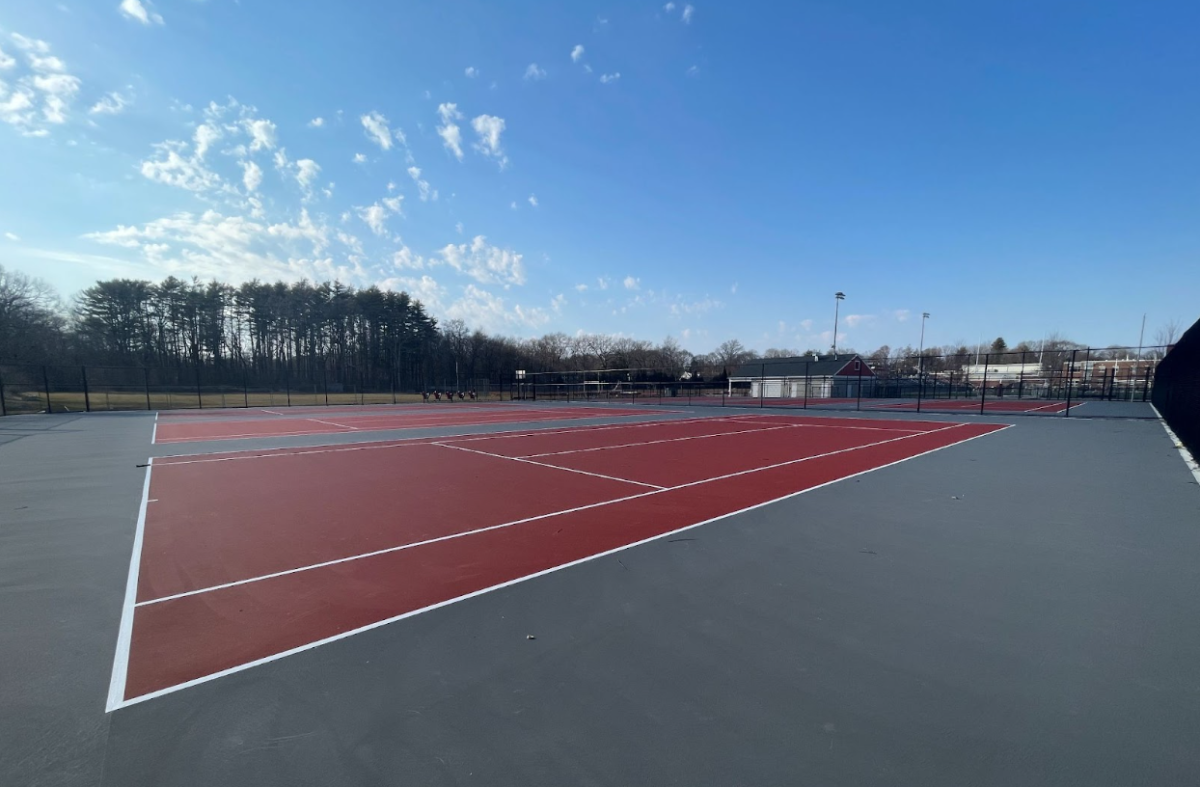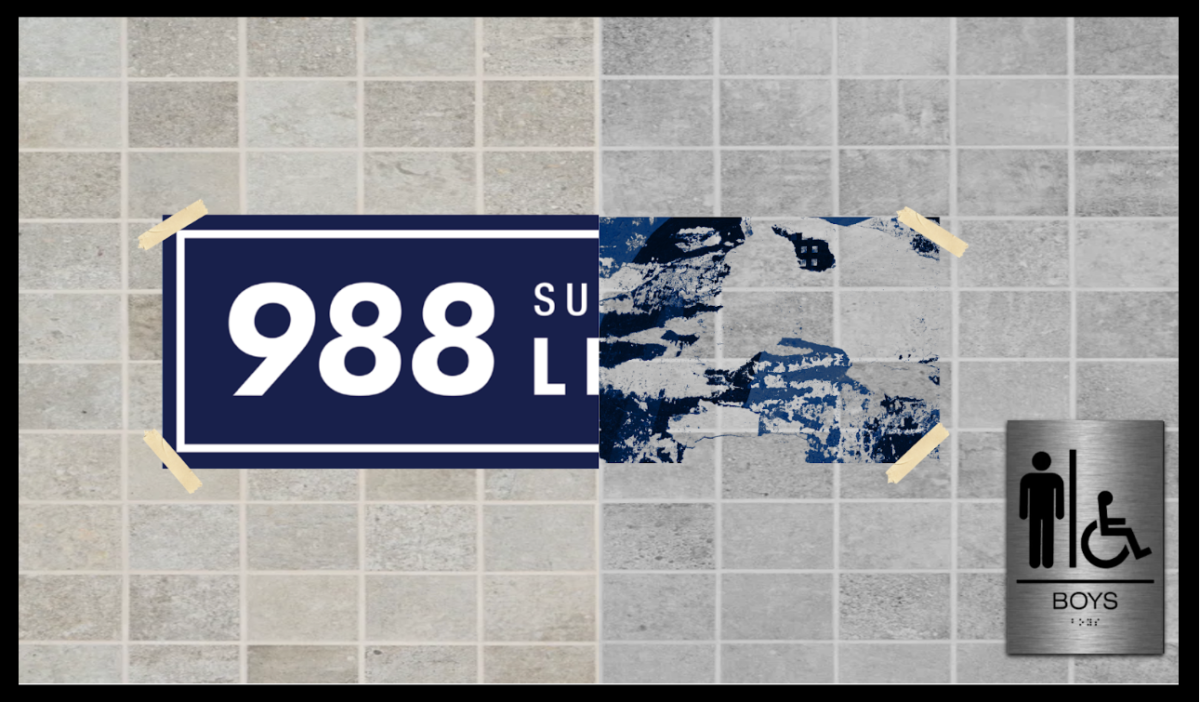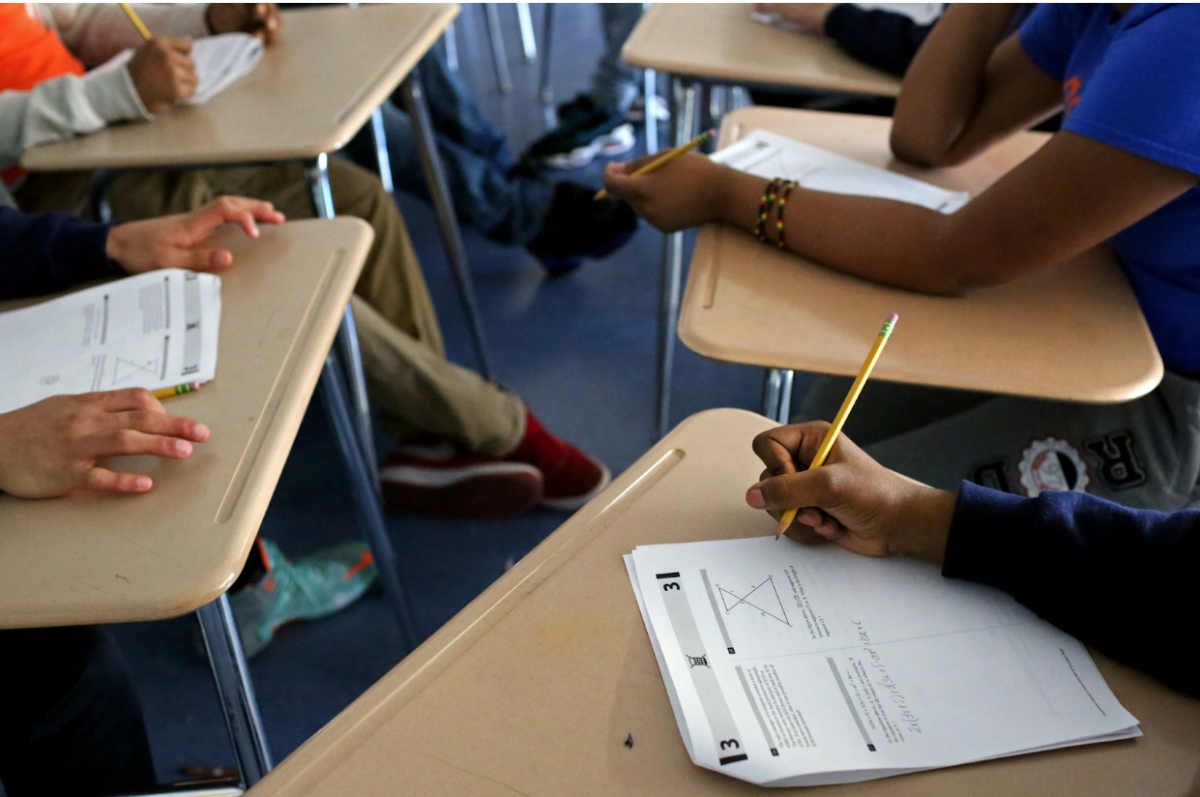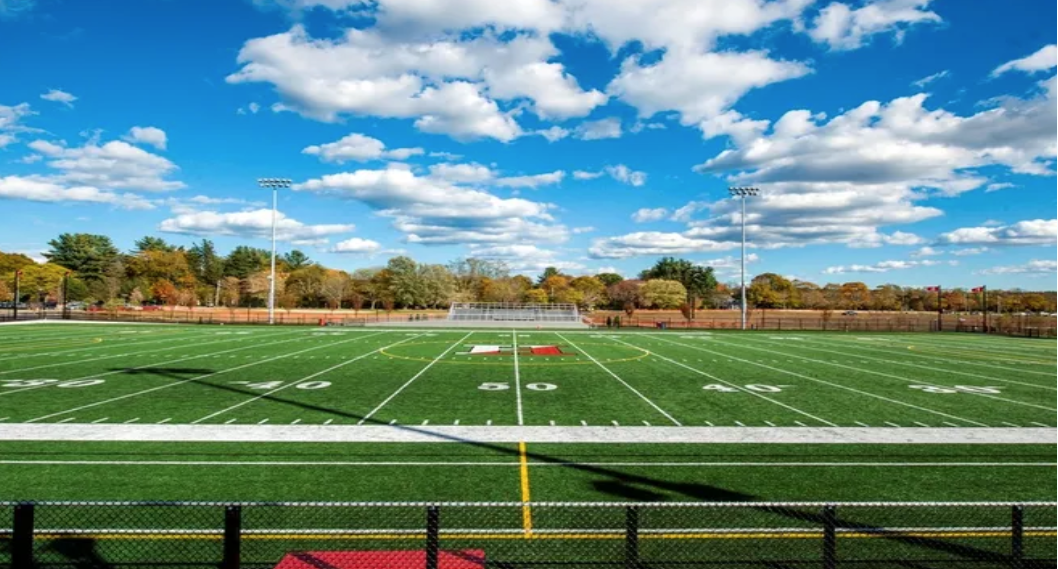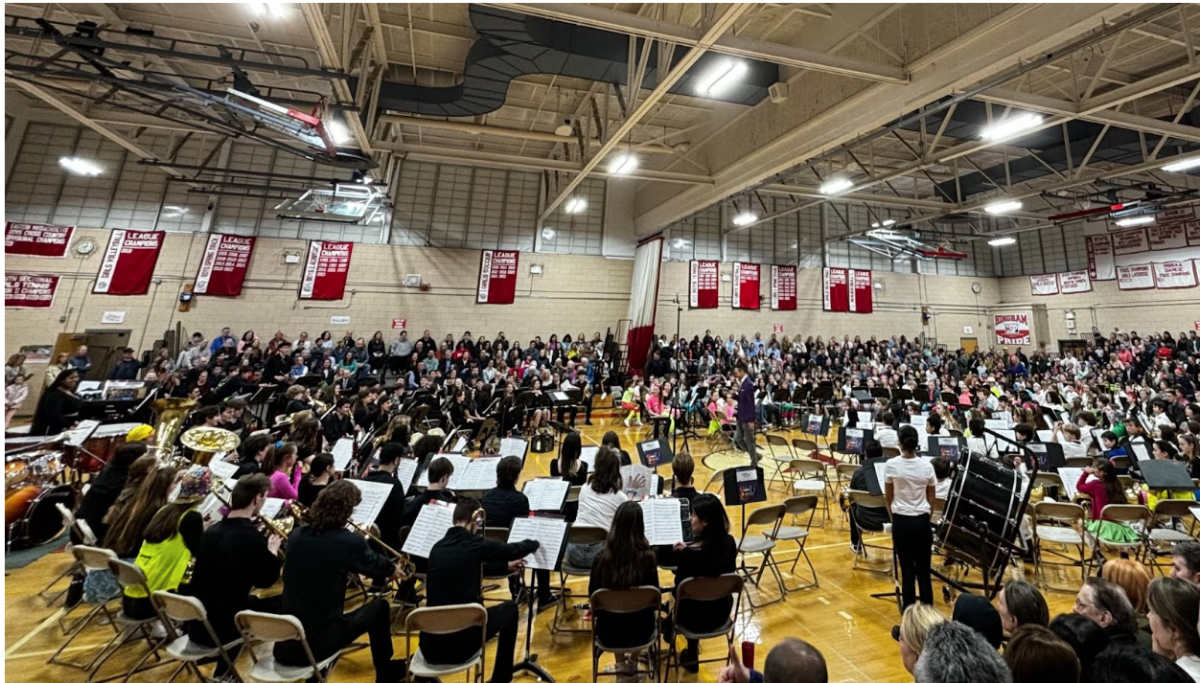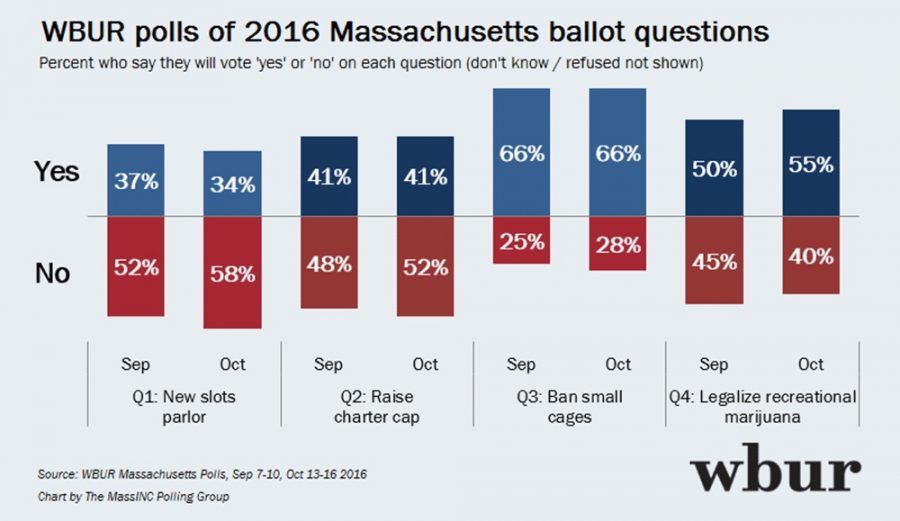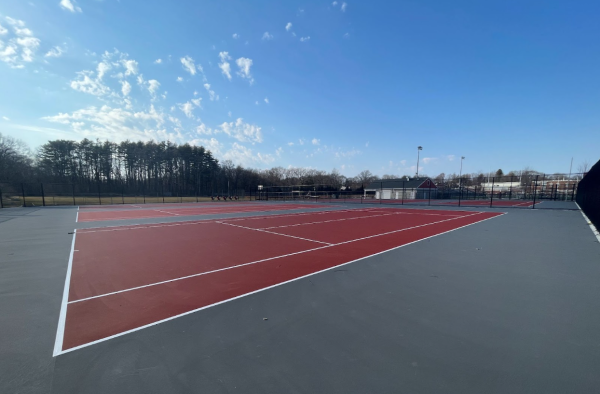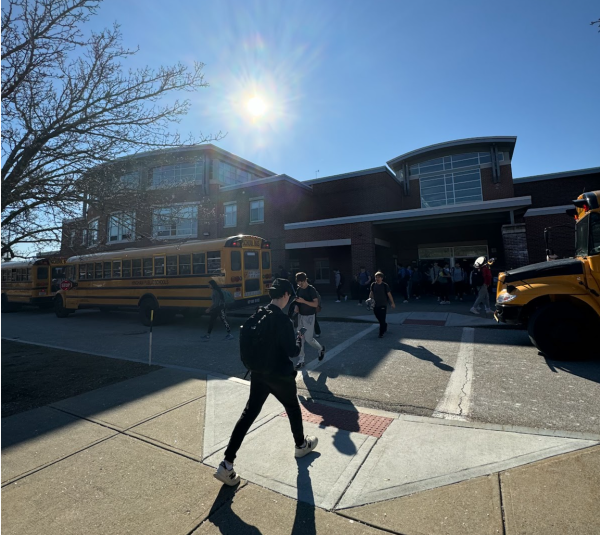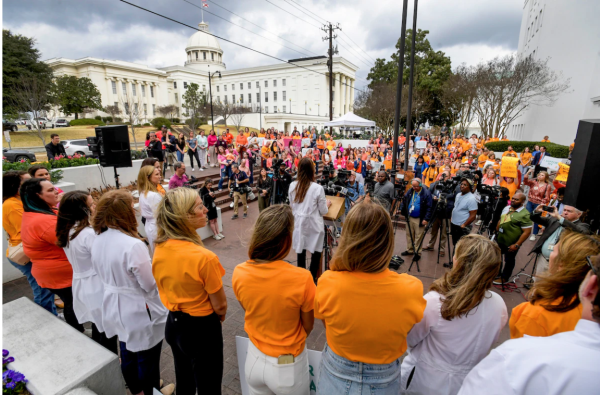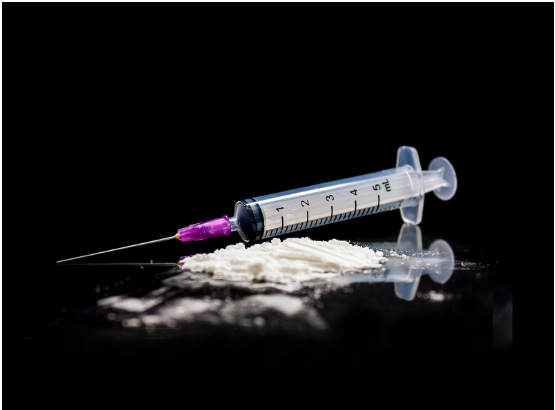Question 4: Salvation or Public Danger?
October 30, 2016
This past April I wrote an article on the rethinking of America’s War on Drugs and the possible benefits of Marijuana Legalization. In the time that has eclipsed since then, much has changed in the Commonwealth of Massachusetts regarding legalization. Our state is now the final battleground of America’s path to Marijuana Legalization, and I thought it thus appropriate to revisit the topic. While I am myself in favor of the general liberalization of America’s drug laws, what follows is my attempt at a neutral overview of what is perhaps the last of America’s great Culture Wars.
As it currently stands, Massachusetts Ballot Question 4 would essentially legalize the purchase and private use of recreational marijuana for all residents over the age of 21. Yet the actual law which the Ballot Question proposes is thousands of words long, extremely vague and excessively complex.
The legal sale of Cannabis by licensed Marijuana shops and cafes, for example, would not be allowed until January 1, 2018 yet the physical act of buying (but not selling) Marijuana on the black market along with the possession of both Marijuana and plants would technically be legal staring December 15th of this year.
A person above the age of 21 who is living alone would be permitted to possess one ounce of Marijuana in public spaces, four ounces at home and grow up to six plants in addition to the harvested Cannabis which he or she possesses. Meanwhile, if a person of the same age happens to share a household with at least one other person, they can personally possess the same amounts of harvested Marijuana listed above, but the household will be able to collectively grow twelve plants instead of six. The legal amounts of Marijuana specified by the Ballot Question are much larger than those in Colorado and other states where the drug is legal, and this has raised questions about the public commitment which the law would require.
Use in Public Spaces, No-Smoking Areas and most Rented Apartments would remain illegal under the new law, with Marijuana consumption being limited to privately owned homes and licensed Marijuana Cafes. This precaution is key, as smoking in public spaces has been a major complaint in states that have already legalized Cannabis, and could potentially help keep drug use out of the public eye.
The actual tax on Marijuana would be surprisingly light in the state- just 3.75% on top of the state’s standard 6.5% sales tax. This tax is the lowest of any state yet to legalize Cannabis, but is likely to rise before the proposal is allowed to be implemented.
To get a glimpse of Hingham High School’s student body on the issue, I interviewed several students about their opinion on Question 4.
Logan, a Senior, voiced opposition to the new law, stating “I am personally opposed to the legalization of Marijuana because I think that it could lead people into a lifestyle dependent on drugs. I also think that the law could increase rates of theft and DUIs, but would probably not impact rates of violent crime.”
Meanwhile Matt, another Senior, stated that he views legalization favorably. Matt explained that, “While I agree that Marijuana legalization would increase incidents of DUIs, thefts and youth drug use, I think that it will significantly decrease violent crime. I think that it will do this because people will use legal Marijuana instead of harder drugs like cocaine, and this will prevent gang violence and organized crime.”
Charlie, a Junior, stated that he is also in favor of legalizing the drug because it will free up resources for police to combat the worsening opioid epidemic. “I think that criminalization is too expensive. If police resources were freed up by the legalization of Marijuana, they will be able to focus more of their attention on the Opioid Epidemic.”
To get a better perspective on this complex issue, I met with Officer Ford to get his opinions on the Legalization of Marijuana and how it could impact the Commonwealth.
Officer Ford stated that, while he understands many of the arguments in favor of legalization, he is personally against the Legalization of Marijuana in Massachusetts due to the long term effects which it could have upon the state, and the experiences which he has had as a law enforcement officer. He explained that, “Whenever you introduce a substance to an environment, whether it is Marijuana, Alcohol or opioids, it is going to cause an increase in thefts, fraud and drug use.”
Officer Ford also explained that many of the inmates he has met with were under the influence of drugs or alcohol when they committed their crimes and that he has met many drug addicts who started with Marijuana.
When I asked Officer Ford about the impact of legalization on youth drug use, he said that it would cause a general uptick in Marijuana use by minors, and that he is concerned about the long-term effects the drug could have upon developing brains. He appreciated the proposed law’s attempts to keep the drug out of the hands of minors, however, and stated that it would be helpful if the state limited Marijuana advertising the same way that it does for tobacco.
Officer Ford was also concerned about the impact which edible forms of Cannabis could have compared to traditional forms of the drug, stating that, “They squeeze a lot of potency into edible forms of Marijuana, and this can be a problem when people inexperienced with the drug consume large quantities of the drug and they can actually overdose.”
I think that this is an important point to emphasize, because while overdoses from smoking Marijuana are almost unheard of, Colorado and other states have experienced an unnerving uptick in overdoses caused by ingestible Marijuana. These overdoses are largely due to the fact that ingestible forms of Marijuana are many times stronger than traditional forms of the drug, and unlike smokable Marijuana they can be consumed in quick succession.
Officer Ford agreed that the Ballot Question would increase resources which the police could use to contain the growing Opium Epidemic, however, stating that a short-term decrease in incarceration rates and taxes raised by drug sales would free up resources to fight the Opium Epidemic, which he affirmed was law enforcement’s first priority.
Officer Ford stated that, while legalization could cause a long-term increase in crimes like DUIs, thefts and fraud, it would probably not affect rates of violent crime in the state.
Towards the end of the interview I asked Officer Ford about recent anti-drug ads, which have been criticized for spreading misinformation and using fear tactics. “To be honest the ads are exaggerating the impact which the Legalization of Marijuana will have on the state. It is important to understand that towns and cities already have zoning laws and Marijuana shops won’t suddenly appear on every corner.”
I also talked with Officer Ford briefly about Ballot Question 1, which would allow the construction of a casino near Suffolk Downs. “The growth of gambling would also have a negative impact upon the state, as it could lead to increases in organized crime, financial fraud, thefts, prostitution and could attract general criminals to the area.”
As it currently stands, Massachusetts Ballot Question 4 seems very likely to pass, with an October poll by WBUR showing a massive 15-point lead in favor of the proposal. This lead has led to a last minute advertising blitz by the “Vote No on 4” campaign, with much of the funding coming from personal donations by the mega-donor Sheldon Adelson and the GOP firm Jamestown Associates.
This last ditch effort is particularly strange given the role of Sheldon Adelson, who is a leading figure in the Casino Lobby and is notable for his ownership of several prominent Casinos in Las Vegas. Meanwhile Question 1, which proposes the construction of a casino near Suffolk Downs, seems almost certain to fail.
Maine, California, Nevada and Arizona will also vote on the legalization of Marijuana on November 8th, and if it passes in these states the road to national legalization may be forced open.





